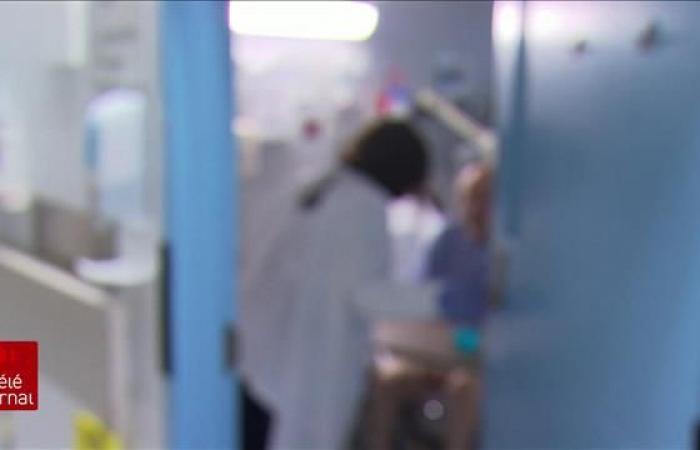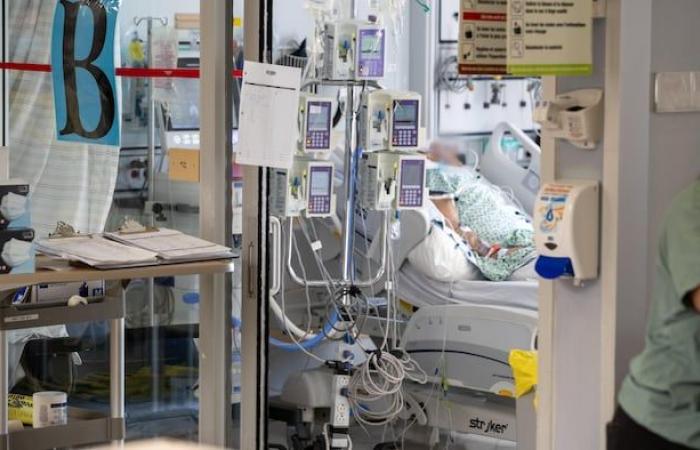Every year, more and more patients hospitalized in Quebec are infected with potentially deadly superbugs that are resistant to antibiotics and against which there are few remedies in Canada, experts worry.
Hidden in medical equipment, in plumbing and in sinks, carbapenemase-producing Gram-negative bacilli (BGNPC) have contaminated almost three times as many patients this year compared to 2019.
Even if this group of bacteria is far from rare, it has the particularity of having developed resistance to antibiotics commonly used to treat infections, as reported on Saturday by the newspaper The Press.
The majority of people will be [seulement] what we call colonized, that is to say that the bacteria will live in their bodies, in their intestine, in the urine, but will not cause problems
explains Dr. Marie-Astrid Lefebvre, pediatric infectious disease specialist and senior director of infection prevention and control at the Montreal Children’s Hospital.
It is in the minority of patients that an infection will develop
and this can prove fatal for certain weakened patients in a hospital environment, maintains the infectious disease specialist.
Often, these will be patients who have a lot of underlying illnesses, […] who are already very ill and who also have catheters, are intubated or equipped with medical devices that facilitate invasion by the bacteria
illustrates Dr. Lefebvre.
Of the 1,259 Quebec patients who were declared carriers of a superbug of this type during the year 2023-2024, 99 developed an infection and 13 died, according to data from the Central Committee for Provincial Surveillance of Nosocomial Infections (SPIN ) of theINSPQ.
THE BGNPC are transmitted mainly by contact, but also through the contaminated environment, including sinks and pipes, which are favorable environments. Good hand hygiene and hospital rooms are therefore crucial to guard against it.
Charlotte Dumoulin’s report
Avoid loss of control
Antibiotic resistance developed by certain bacteria nevertheless remains a real challenge for pharmacologists and doctors. According to the World Health Organization, antimicrobial resistance is one of the main threats to human health.
This is a problem that has been important on the planet since […] about twenty years
says Dr. Christian Lavallée, microbiologist and infectious disease specialist.
There are some new drugs that work very well against these bacteria. The problem is that they are not readily available in Canada.
According to the specialist doctor, as soon as we discover that an infected patient has been colonized by bacteria that are resistant to antibiotics, a countdown begins: in severe cases of infection, the more quickly he is treated, the greater his chances. survival increases.
Often, we do not have [alors] no good [solutions de rechange] to treat the infection. You must apply to the special access program to obtain these antibiotics elsewhere on the planet. Even though Health Canada generally responds to us relatively quickly […]for a very sick patient in intensive care, these delays, […] that’s what’s the problem
indicates Dr. Lavallée.
Open in full screen mode
BGNPC bacteria can hide in medical equipment, plumbing and sinks. (Archive photo)
Photo: - / Yoann Dénécé
The phenomenon is all the more worrying as it reveals the progression of superbugs in Canada, a trend which does not abate, but remains less pronounced than in other countries in the world, such as Italy, Greece and the India, where the proportion of these bacteria in a hospital is really very high
.
We are worried in the sense that we see the increase in cases, we know how bad things can get when we look at other places on the planet
warns the doctor. If we look at European data, […] in some years, almost half of the bacteria in the blood of intensive care patients were resistant to antibiotics
.
Federal authorities must be convinced to find ways to make these drugs easily accessible in Canada
suggests Christian Lavallée.
In Quebec, surveillance of carbapenemase-producing Gram-negative bacilli has been mandatory since 2017 in health care establishments in the province.
With information from Charlotte Dumoulin and Alexis Gacon







